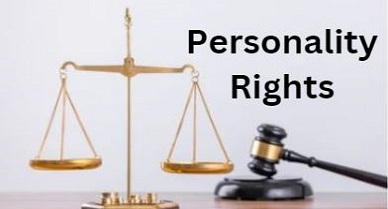Unreasoned Orders for Personality Rights
Introduction
In order to convey the essence of a judicial decision, it is essential that it be supported by reasons. This obligation serves as a check against arbitrary exercise of judicial power, which is in line with Article 14 of the Constitution and the principles of natural justice. Additionally, the ratio decidendi of judicial decisions serves as a precedent for future judgments.
Despite the Supreme Court emphasizing the importance of providing reasons for the judgment, courts often fail to fulfill this requirement. In the interim stage, courts may refrain from passing detailed orders due to the early stage of proceedings. As a result, interim orders in trademark infringement cases have become somewhat standardized. However, even in areas of the law that are not fully developed, it is crucial to indicate the legal basis for an order, even if briefly, as this requirement should not be sacrificed for the sake of judicial expediency.
The jurisprudence of such rights
In the case of Amitabh Bachchan v. Rajat Nagi & Ors., the defendants were accused of using Mr. Bachchan’s name and likeness without authorization to promote their products. At the first hearing, the defendants were restrained by an ex parte ad interim injunction. However, the order was brief and did not specify any statutory or common law basis for the protection of personality rights, merely citing Titan Industries as precedent.
Unfortunately, even the Titan Industries decision merely acknowledged the right of a famous personality to control the use of their identity without providing a clear basis in statutory or common law.
[Image Sources : Shutterstock]
While some jurisdictions, like Spain (Article 7.6 of Ley Orgánica 1/1982) and California (§3344, California Civil Code), provide statutory protection for personality/publicity rights, Indian statutes do not explicitly recognize or safeguard such rights. Consequently, courts in India must either base their recognition of personality rights on common law or constitutional principles, which leaves several questions unanswered. For example, can personality rights be viewed as an extension of the right to privacy?
To answer this question, it is useful to look at the legal position in the United States, where common law is relied upon to enforce personality rights, despite the existence of statutory recognition in some states. In the case of Zaccchini v. Scripps-Howard, the US Supreme Court distinguished the right of publicity from the right to privacy and ruled in favor of Zaccchini for the unauthorized broadcast of his performance by the defendant under publicity rights. The court recognized the commercial aspect of personality rights, indicating that they are not a derivation of privacy rights. Thus, extending the right to privacy to regulate the commercial exploitation of one’s celebrity status may not be appropriate. Additionally, the US recognizes the public’s right to free speech and expression, and determining when publicity rights can override free speech interests requires attention.
Creative/editorial speech and commercial speech may be treated differently, as indicated by US courts in Havilland v. FX Networks and Guglielmi v. Spelling-Goldberg Prods., where the former takes precedence over publicity rights, while the latter may not. Using the name or image of a celebrity for brand advertisement or promotion in the US does not always attract liability, provided the brand is not falsely misleading the public that the celebrity endorses the product. Therefore, the right to publicity in the US aims to prevent the unfair appropriation of an individual’s celebrity for commercial gains, indicating a close association with false advertising law.
Courts in India have relied on a combination of legal concepts to determine the status of personality rights. In Gautam Gambhir v. D.A.P & Co. & Anr., the issue was the unauthorized use of the name ‘Gautam Gambhir’ by a restaurant, but the court ruled against the plaintiff due to lack of evidence of actual consumer confusion, harm to reputation, and commercial misappropriation of the name. This decision illustrates the uncertain nature of personality rights in Indian law. While the court in Titan Industries did not require proof of falsity, confusion or deception, the Gautam Gambhir court emphasized the need for evidence to establish confusion and disrepute, potentially due to the case being analyzed under trademark law. However, the requirement to prove disrepute has limited scope under trademark law and is more associated with defamation, hinting at a conflation of different legal grounds.
Interestingly, the court in Gautam Gambhir v. D.A.P & Co. & Anr. employed the concept of trademark dilution to determine personality rights infringement, raising the question of whether a person’s name, voice, and likeness can fall under trademark law. However, Indian case law is yet to address the threshold for exercising personality rights, specifically, how famous one must be to prevent third-party use of their likeness for commercial purposes. Given the rise of social media influencers and the proliferation of ways to gain celebrity, it is crucial to establish clear guidelines for personality rights protection.
The current state of Indian case law leaves the basis and extent of personality rights protection ambiguous, lacks necessary rationale for appellate review, and provides limited guidance to lower courts and future High Court benches tasked with similar cases, hindering the development of robust jurisprudence.
Conclusion
The lack of clarity surrounding the legal basis for protecting personality rights in India is evident from the disparate judgments in this area. While the courts agree that celebrities have the right to control the commercial exploitation of their identity, the legal framework for this right remains uncertain. Common law could potentially provide a solution, but passing off requires consumer confusion, which may not always be present. The jurisprudential development of personality rights in India requires the courts to provide well-reasoned decisions that delineate the legal basis for these rights. The Supreme Court’s emphasis on well-reasoned decisions should be taken seriously to carve out a nascent law that requires a judicious approach. Without such discipline, the law on personality rights in India will remain undeveloped and ambiguous.
Author: Tanya Saraswat, A Student at Himachal Pradesh National Law University, Shimla, in case of any queries please contact/write back to us at support@ipandlegalfilings.com or IP & Legal Filing.
References
- https://spicyip.com/2023/04/legal-basis-for-personality-rights-in-india-the-repercussions-of-unreasoned-decisions.html
- http://164.100.60.183/dhc_case_status_aprox_oj_list.asp?ctype=CS(COMM)&cno=819&cyear=2022



